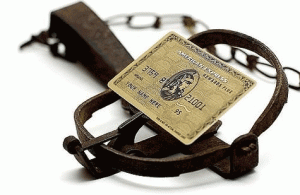We all have them: Expenses we can’t sidestep, things we would like to have and long-term hopes and plans that require up-front planning.

That’s what budgeting is all about. It gives you a clear picture of what you have, what you must spend and what’s left over for those things that are only dreams in the making. For most of us, it’s clear that the “musts” will eat up most of the paycheck. Surveys show that the average American household spends 80 percent of its income on essentials. Sixty percent, right up front, goes to housing, food, gas and insurance.
The budget becomes the tool that keeps you within the boundaries of your available income and allows you to wisely plan for the “wants.” What it takes is discipline, planning and prioritization.
Use Budgeting Tools Online
First off, be aware that many financial institutions offer on-line or paper plans to help you create a budget. Use them.
Goal Setting
Where to begin? Setting a goal is a good idea as a prelude to making the plan. Clearly put down in black and white what your main financial objectives are.
Establish Your Exact Income
The next step, obviously, is having a very clear picture of your income. That’s essential to planning the outgo. Start with your net income. Get some concrete evidence of what the figure actually is by reviewing pay stubs or other records of income. Standard deductions are shown, such as insurance, taxes, 401K contributions, etc. That will give you a list of what’s being skimmed off before you get what actually goes into the bank. The latter figure is what you’ll work with as you plan how to spend.
Discover Your Basic Expenses
The next step is to look at your basic expenses. As a rule, these don’t fluctuate much from month to month. They include rent or mortgage payments, utility costs, car payments and expenses, insurance and regular payments on existing loans, such as education costs.
Establish An Emergency Fund
Ideally, you need a safety net, a reserve for those unplanned life events such as unseen medical expenses, car repairs, large appliance replacements, necessary upgrades to furnaces, water heaters, etc. etc. The list is long and, for most people, entirely unpredictable except in the fact that they inevitably happen. Try hard to build yourself a little cushion against the day that it’s your turn. That means creating a savings program that is backed by a firm hands-off policy. An automatic deposit into a bank or credit union savings account , mutual fund or other established savings program may reduce the temptation to dip into this reserve. Setting up a yearly CD account may be what it takes to reduce the temptation to dip into easily available savings.
Cut Back
Look for places where you can trim. Do you really need several hundred options for television viewing. How about a basic program? Could you save on meals by taking a lunch to work a few times each week? Public transportation? Car pooling? Eating at home instead of frequently dining out? Expensive personal habits such as smoking and excessive drinking might offer a source of savings, as well as reducing medical expenses down the line. Look online to find advice, such as practical tips on how to save money. There are dozens of them.
Plan a certain amount of cash to see you through each pay period. Knowing you have just $60 in discretionary spending money may make the desire for a $60 pair of shoes easier to bypass.
Pay Off Credit Cards
Try to pay off credit cards. Don’t accumulate a pocketful to begin with. Choose one, based on the best combination of offerings, and stick with it. If that advice comes too late, make a concerted effort to pay them off one at a time, starting with the one with the highest interest. Add a few dollars to the monthly payment on that one account until it is paid off, then go to the next one. With your budget firmly in mind, resist the temptation to use credit cards for “whim” purchases.
Include every person in your household in the budgeting process. If a wife is firmly committed to a budget and her spouse is bent on accumulating debt, or vice versa, the effort is usually hopeless. Children who see the figures concretely may make fewer demands on the family resources. And they’ll learn the fundamentals of money management into the bargain.
Continue Planning Throughout The Year
A budget isn’t a one-time effort. Ongoing planning and revision are essential as life circumstances affect income and spending. Routinely balancing the bankbook is part of wise budgeting. It’s easy to miscalculate spending if you aren’t certain what the bottom line is. Save receipts and write down where you spend money so you can’t become hazy about actual expenditures.
Allow Occasional Splurges
An occasional splurge isn’t fatal, but there is a calming effect in being in control of your income and outgo. Make a budget your friend and stick with him.
Related articles across the web








